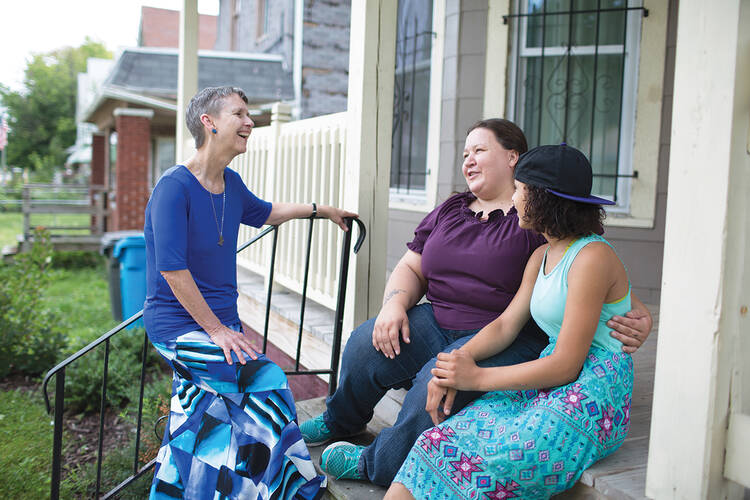Sister Sandy Sherman thought she would follow the traditional route of women religious, joining the ranks of the Catholic teachers who had inspired her.
“I thought I would enter and I would teach school my whole life and I would wear a habit,” said Sherman, who joined the Order of Saint Ursula in 1975. “Well, I entered and I’ve never worn a habit.”
The Ohio native did teach for several years, but she has also devoted herself to Rahab’s Heart, a street ministry program in Toledo for women involved in prostitution and sex trafficking. The group offers resources and hands out personal hygiene items, food and clothing.
Like pioneers, Catholic sisters “keep moving to the edges,” Sister Sherman said.
But most Americans are not aware of such efforts and continue to hold outdated misconceptions about Catholic sisters and the work they do. That’s according to recent research that partly inspired the Conrad N. Hilton Foundation’s “Sister to All” campaign to raise public awareness about women religious.
In a nation growing more defined by skepticism of organized religion, Americans continue to see Catholic sisters in a positive light. The report notes: “Americans are twice as likely to hold very favorable views toward Catholic sisters and nuns than they do for the Catholic Church and Catholic priests in general.” More than 70 percent of people surveyed reported positive feelings toward women religious, with 73 percent of respondents saying they trust Catholic sisters. Even more—83 percent—said their work is important.
Despite these favorable views, Jennifer Robbins, C.E.O. and co-founder of Anderson Robbins Research, said Americans “didn’t really know much about Catholic sisters, except for old, outdated stereotypes.” The Boston-based organization conducted the 2015 study.
And Catholics did no better on the survey than other Americans in their knowledge of sisters. The research indicates that dated perceptions of Catholic sisters are shaped primarily by fictional stories and the media instead of real-world encounters. For example, 42 percent of respondents believe the majority of Catholic sisters today wear habits, 21 percent believe they live in seclusion, and 37 percent thought their work has little or no impact on non-Catholics.
Those people may not have met a woman like Sister Karen Bland, the director of Grand Valley Catholic Outreach in Grand Junction, Colo. Her organization supports local homeless people with a food and clothing pantry and soup kitchen and sponsors construction of housing for the chronically homeless, many of whom are mentally or physically disabled. Whatever folks in her community may think about the lives of Catholic sisters, Sister Bland believes Grand Valley’s efforts have been well appreciated by the larger community.
Meeting a Catholic sister is one of the most important factors in shaping a person’s knowledge about them, the report found. And the study notes a high level of apprehension from parents about the possibility of their daughter becoming a Catholic sister. About a third of respondents said they would encourage them to rethink the decision.
Robbins said the hesitation is a byproduct of the lack of information about Catholic sisters. Parents think joining a religious order means sacrifice, she said.
“If someone chooses to enter a religious life, it’s not about choosing to live this closed life,” she said. “These women have these very strong communities. They are out there pursuing their dreams.”








